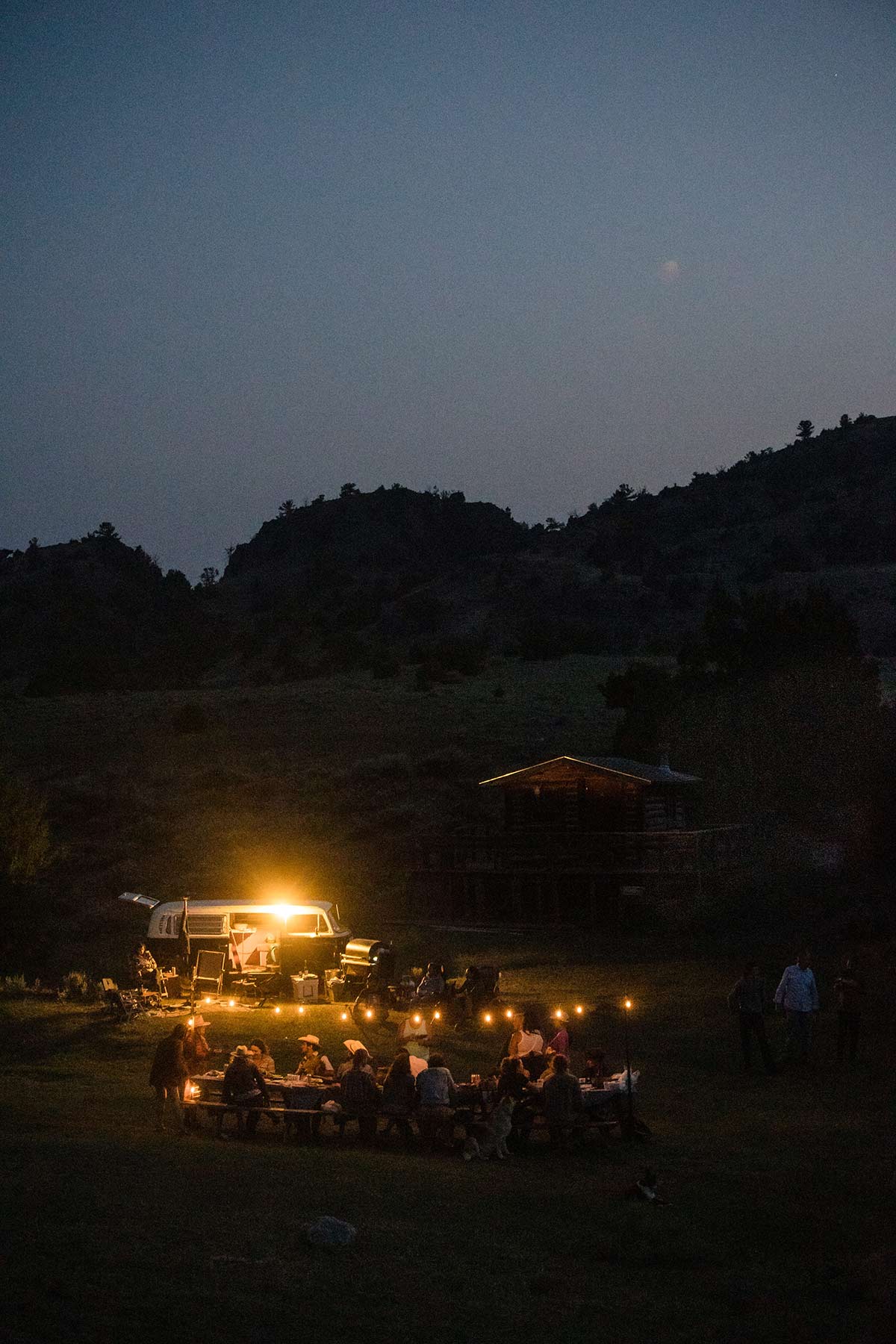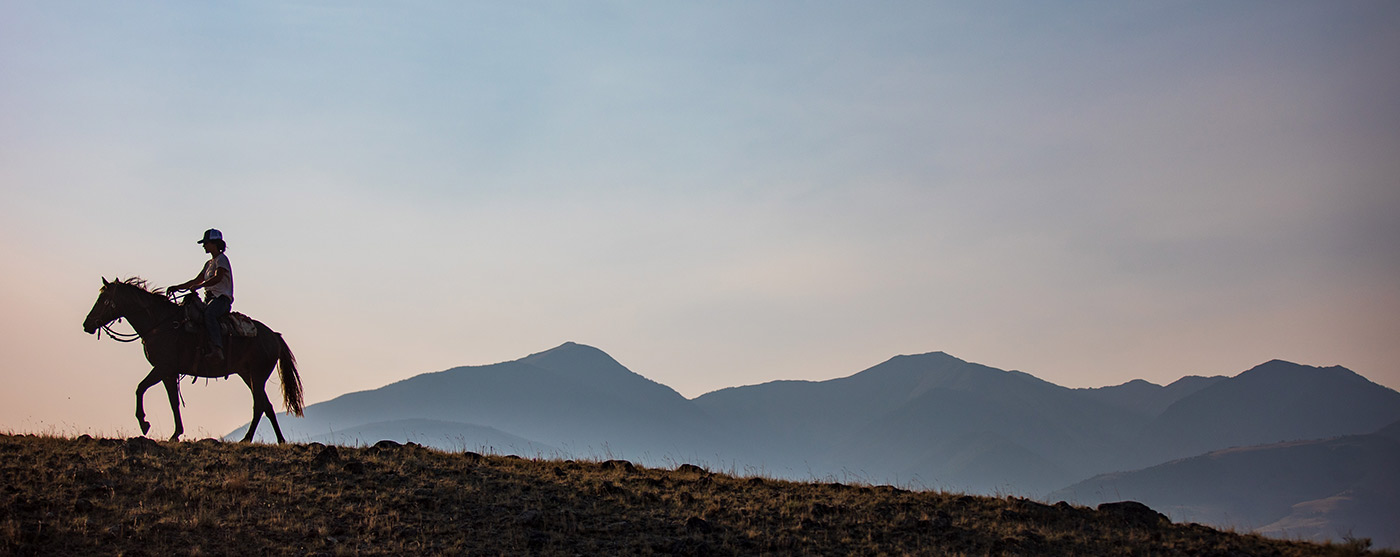The Magic of Montana…
Oftentimes, when we sit down to a meal, it’s easy to lose sight of the story behind your plate. And not just how it was cooked or what temperature you asked for, but the smaller bits of the plot. Where did the ingredients come from? What was the chef thinking about when he put together this recipe. How does this dish make us feel connected to the people and places around us? Chef Eduardo Garcia is not one to leave you feeling disconnected or with an empty plate—so choosing to celebrate his 40th birthday with that in mind was only natural. With ingredients supplied by Snake River Farms and underneath the vast sky of Montana, we asked Eduardo to take us through the milestone day with a little food and conversation. Even left us with a recipe or two.
Whalebone: For someone who has never been, could you describe what living in Montana would sound like if you were setting the scene in a novel?
Eduardo: For me, it is a place where geography and nature really play a part in your ambient, everyday life. The wind is a character. Even when it’s still, it’s a character, and you note it, “Wow. The wind isn’t blowing today.” Because we’re at elevation in a part of the world where the weather can play such a role. It’s not easy to live in Montana without noting the outdoors.
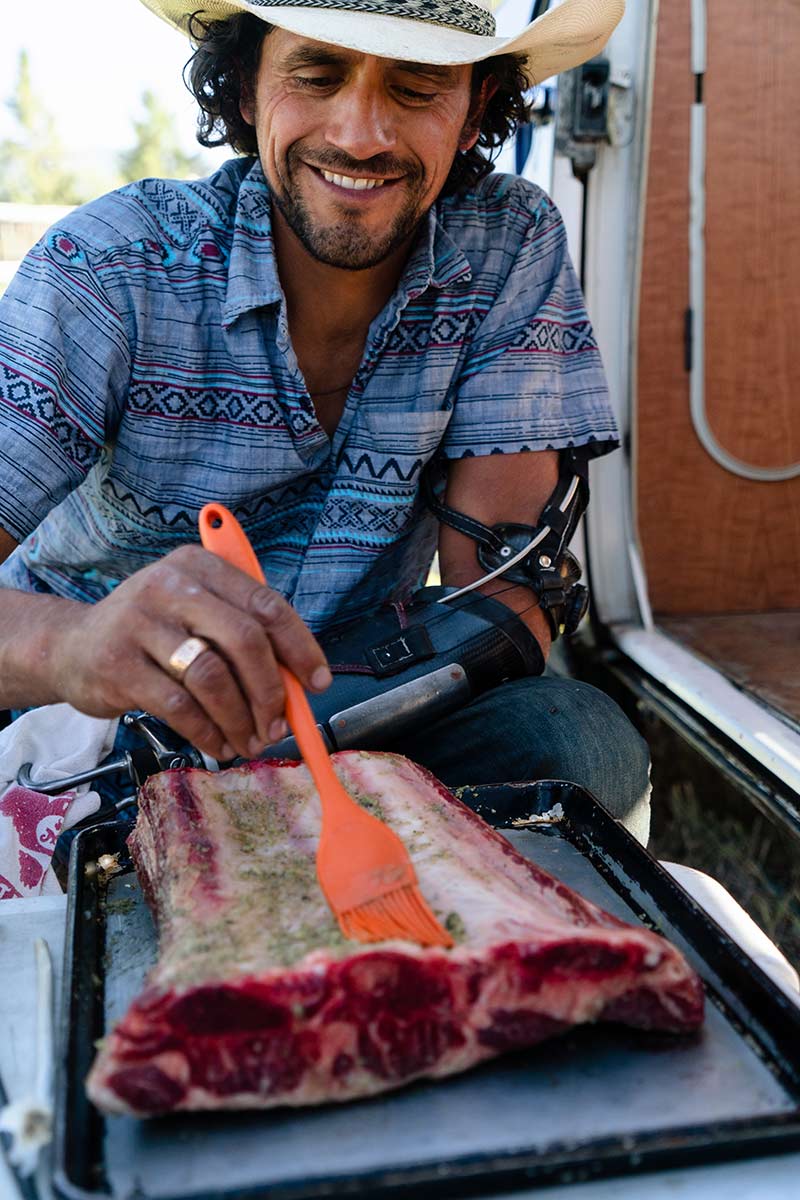
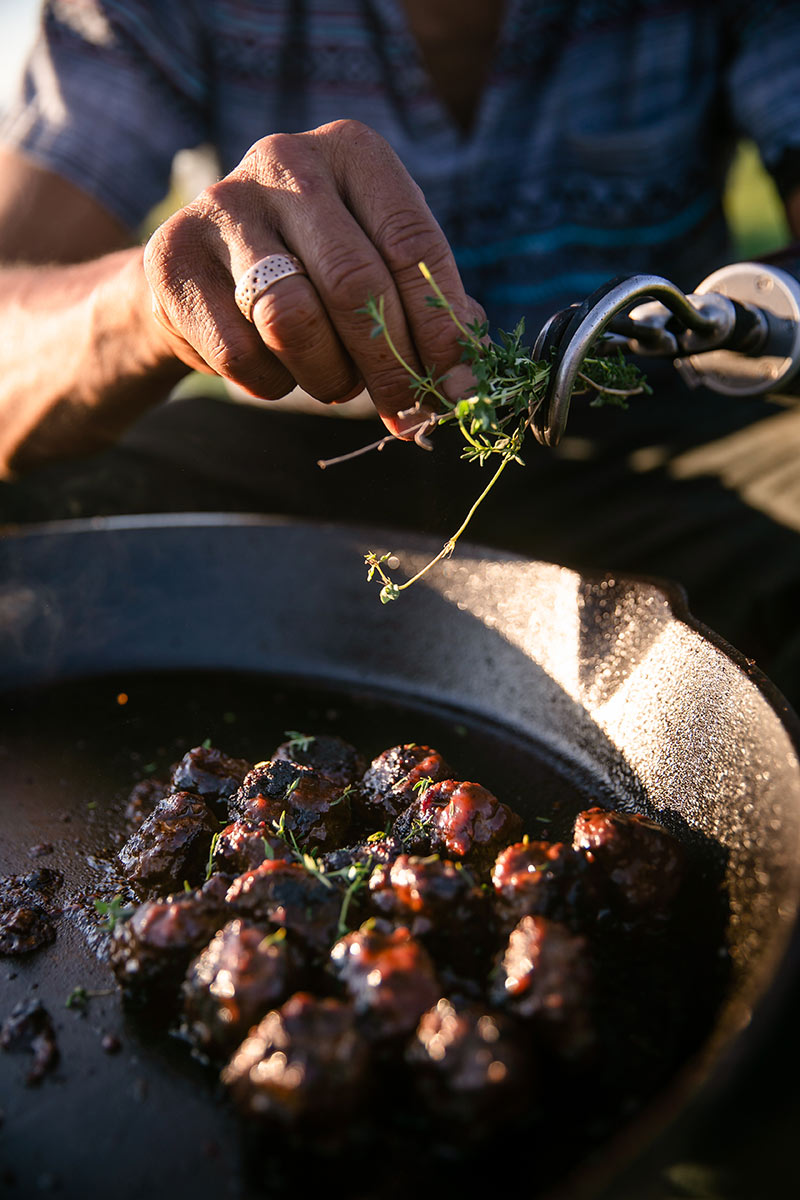
WB: How does living there reflect itself in your cooking? Is it the style? Is it an ingredient?
Eduardo: I have found as a professional chef that my cooking has almost gone back to the way I see the world. I find a lot of fascination in the way that the chips have naturally fallen in Mother Nature and in the outdoors. With my food, it’s constructed and created for sure from raw materials, I like presenting things with the peel on, the roots and dangly bits on. I guess my approach to food is less finessed than it used to be and a little bit more feral.
If you think of wine, it’s so celebrated. If it wasn’t alcoholic, would it be so celebrated? Probably not. Is there any juice out there that gets that much love? No. I think when we eat a russet potato from a few different farmer’s fields it’s interesting to stop and just try and get to know, “Minerality of soil. Terroir still applies to my French fries. Interesting.”
WB: How do you personally try to respect your ingredients when you’re preparing food? And how important is starting with the right ingredients?
Eduardo: Humility and a good time. I don’t mind playing with new ingredients. I’m not a purist either, I don’t mind having many different ingredients playing together in the same dish. I also really appreciate a pile of greens with good oil and salt. That’s one of my favorite salad dressings.
WB: What’s one quality in the ingredients that Snake River Farms has that you look for in ingredients, like something that they do that brings the quality that you appreciate?
Eduardo: I’ve bought their product for many years now throughout my career, actually. That was part of the joy of this collaboration. From a chef’s take, on the one hand, we understand that consistency in nature is a fallacy. To expect it the same every time is setting yourself up to fail. I always expect there to be some change in product. Yet the parts that we control, which are, “How are they cared for? How is the product harvested? How is it processed? How is it packaged? How is it delivered?” all of that is a part of the human construct, and I really love seeing the quality in that process, because the Mother Nature part is perfect. What about our part?
I always recognize that with Snake River and that they really took care and time to present their product with enough value and quality, like human-based. I always felt connected to the fact that they were really trying to toe the line with what they knew was the quality of their product and not drop the ball between the animal and the consumer, and the consistency of how it’s cut or cleaned, no sharp edges on bones, the details. I saw that early on years ago and still do.
WB: About your birthday, when deciding on the menu for you and your brother, what, if anything, did you take into consideration?
Eduardo: Well, everyone says you are over the hill when you turn 40, and I never really understood that. I recognize that it was a cultural saying, but I said, “What hill are you talking about?” I don’t understand if people think your life’s downhill from 40? I feel like maybe now we’ve got enough of our bullshit, our transgressions and our wild oats out of the way that we can maybe find a little bit more ease and joy in the hard work.
When thinking about what menu, it really had to do with place. I said, “Well, where do we want to be?” When we were kids and we grew up, my mom would always arrange a big flotilla of rafts and tubes and gangly kids and let us float down the river and meet us at the beach where the bridge is and where you can take your boats out. We’d just roast hot dogs. Everyone would whittle their own stick. A knife would get passed around. You have real simple joys. As a chef, I’ve totally become accustomed to more is more and more is better. With our meal and the whole birthday bash, it was just saying, “What are the things that we just love, we’re giddy about?” Gathering our friends and family and playing.
So when thinking about our birthday, I knew that there is a little boy in both of us that when looking at a massive beef rib and the meat on both sides of it, I thought, “Well, at 40, I want to think like I’m eight again and 12 again.” And tacos. We’re a Latino family. We really celebrate our Latino roots or Mexican roots. Passing those roots on too and making tortillas with the kids and carne asada. It was just a combination of all of our childhood loves, I guess, coming together, riding horses.
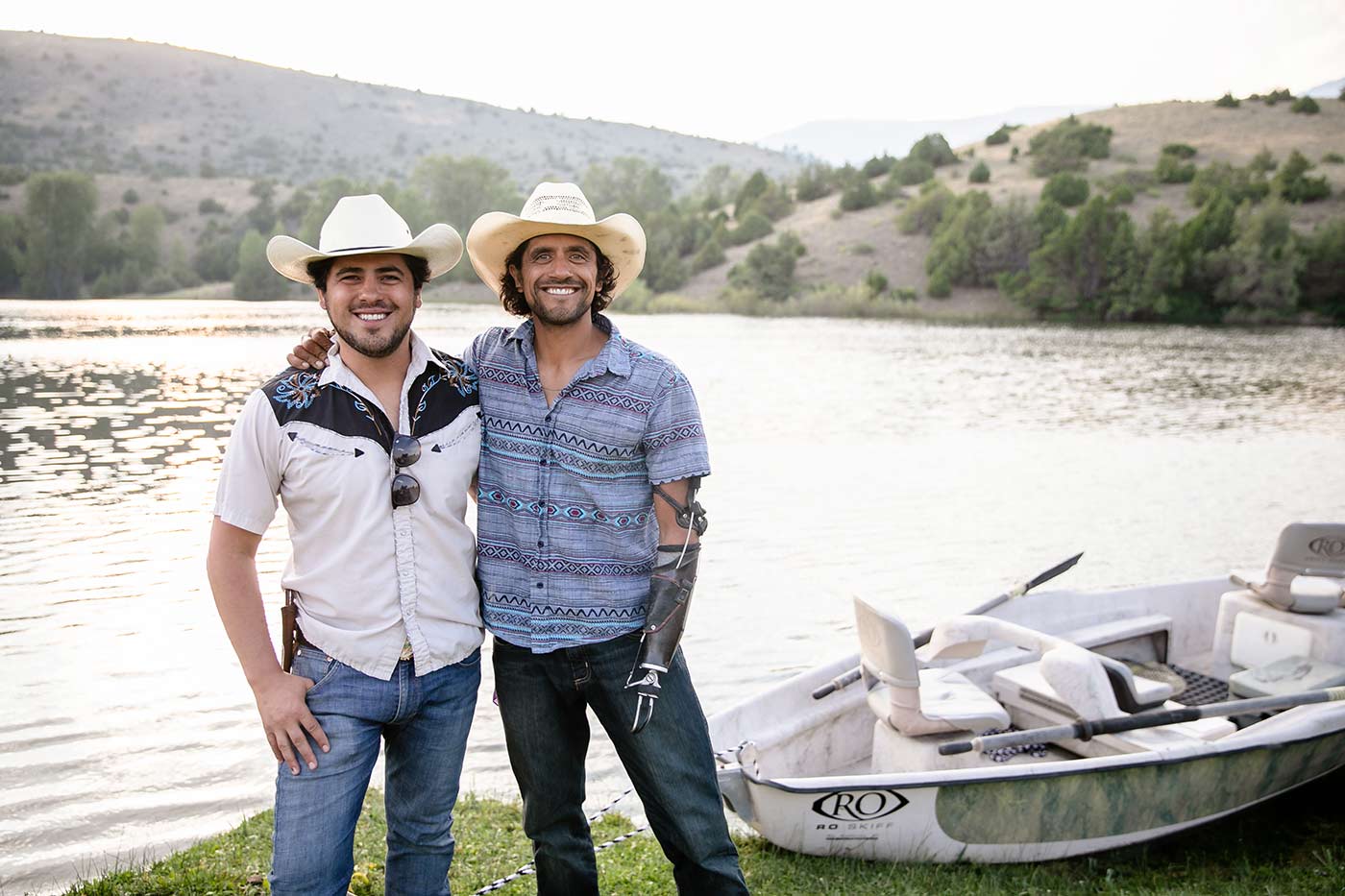
WB: Is your brother more preferential when it comes to food? Is he pickier?
Eduardo: He never made a dollar off her, but my mom totally said and kept a standing agreement that if he could make it an entire day without complaining about something, she’d give him a buck. I don’t know if he was complaining. That’s how it can feel when you’re a single mom. I think it was more he speaks his mind. If his pasta could have been more something, he would say it. It was an expression of love and care. Why would you not say, “Hey, it was good, but I like it spicy,” or, “I like it saucier.” Now you know what someone likes. I love a boundary like that. It’s amazing
He’s been in food too as long as I have in many ways. He founded Montana Mex. He’s the founder of our company. When he travels, he is definitely getting the espresso. He’s definitely getting the baguette, the prosciutto picnic. He loves those things. For me as a chef, I think I’ve worked with all of those things almost to the point of excess. Now I almost seem to like the simpler things and the more rustic things. When we come together with food, even for this menu, it was calling to this younger part of him, and the fact that it was American Wagyu short ribs, he was tickled.
…it was calling to this younger part of him, and the fact that it was American Wagyu short ribs, he was tickled.
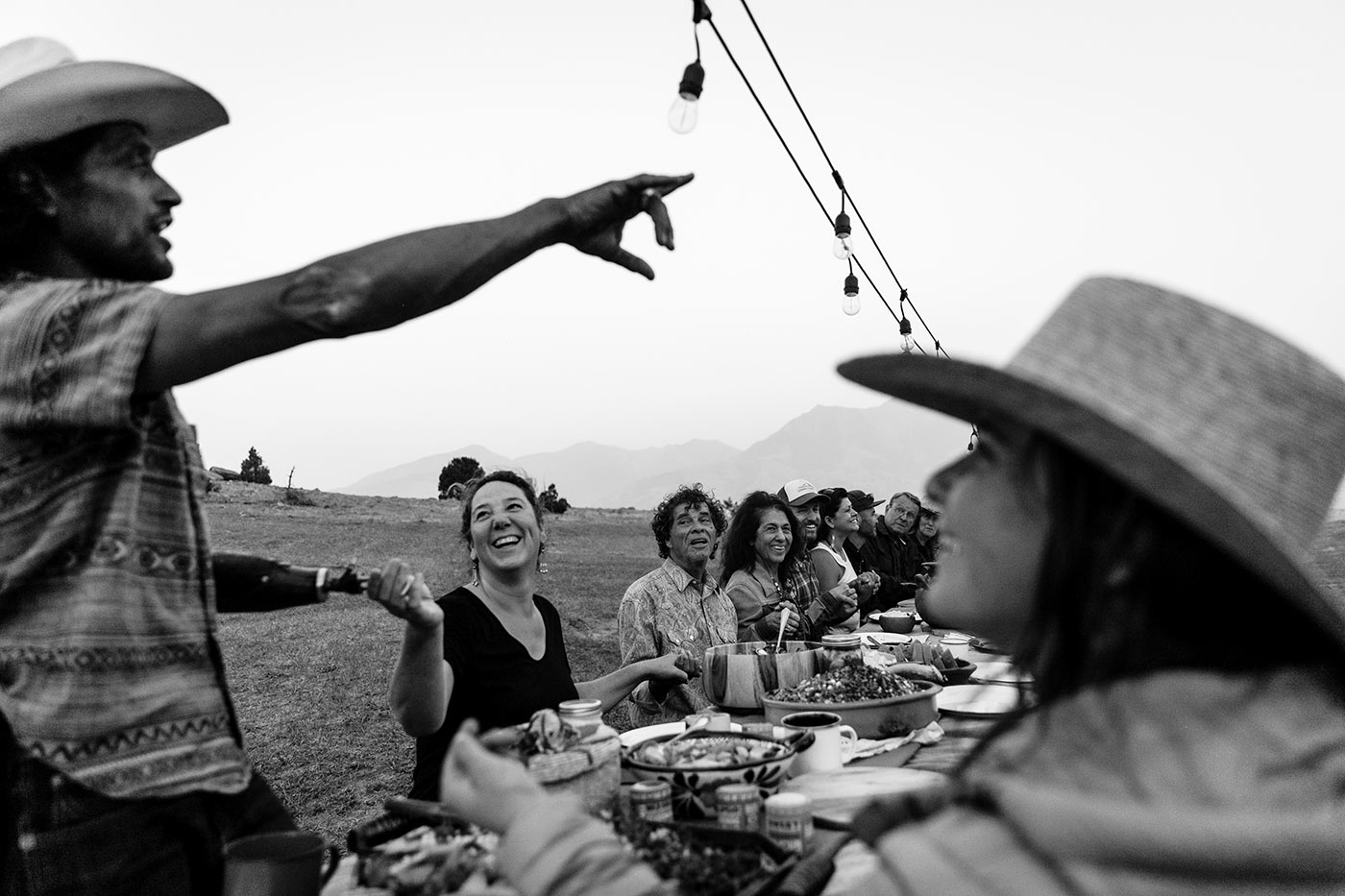
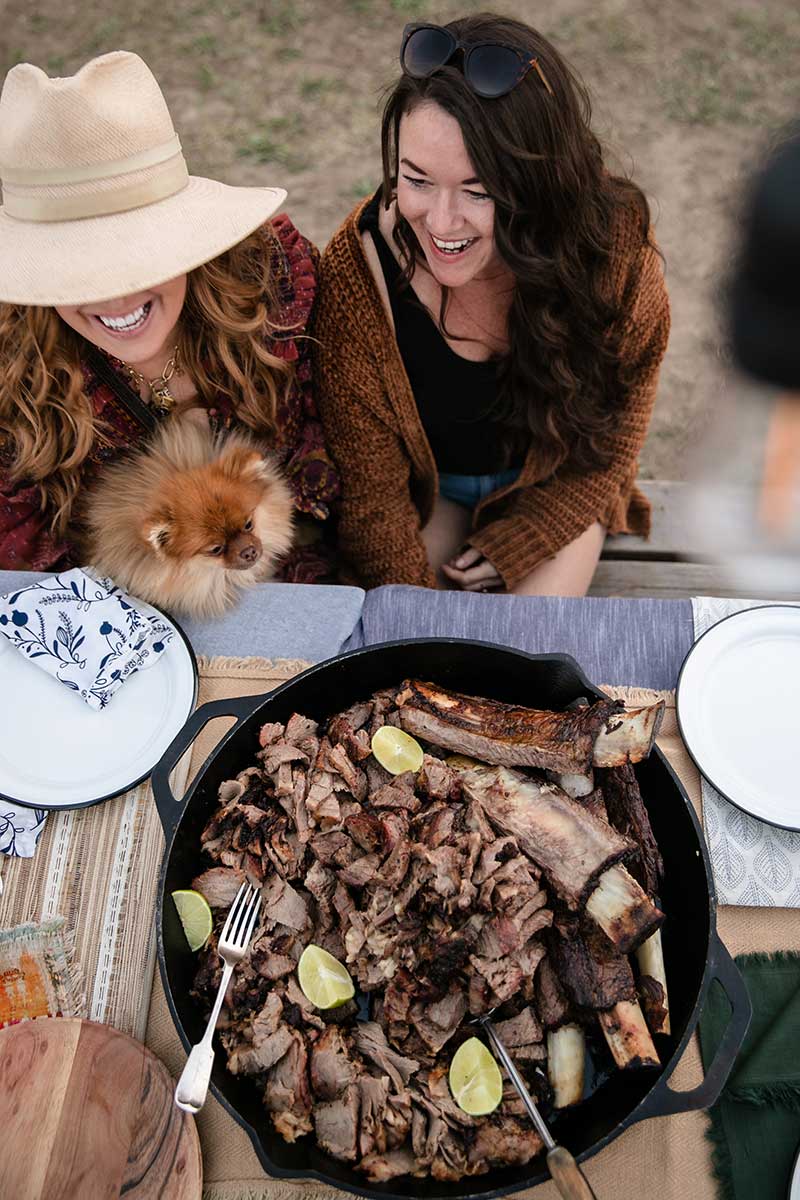
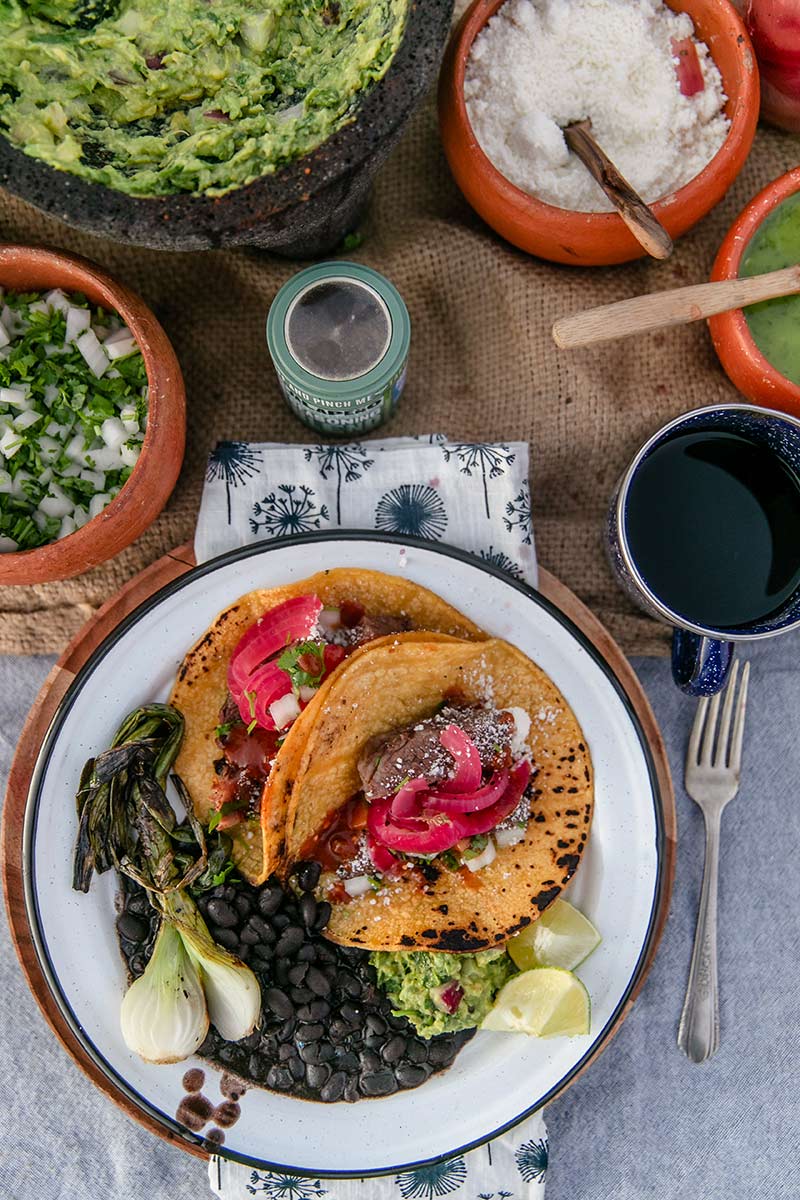
WB: What feels like magic about living in Montana, in Big Sky, if you will?
Eduardo: It’s neither hot nor cold, and that’s why it’s magic. It’s not just one thing that’s dependable. The word magic is connected only to things that are positive, rewarding, sweet, enjoyable. For me, magic is one of those things that is just simply indescribable. That could be any which way of the emotion. Montana—an example of it is today. I think that when these clouds part, there’s going to be snow on the mountains, which is crazy because it was 90 degrees two days ago.
That’s magic, right?
A storm rolls in with such intensity that the wind will pull from east to west as the storm approaches, just sucking in all of this hot valley air because this low-pressure cold front comes in, and it’ll totally rock your world. Branches will break, and trees will halve. It’s so intense sometimes. Then it’s gone, It’s headed east. It’s not just the weather. It’s a dynamic place, and that’s what makes it feel magic for me.
WB: Let’s talk about Montana Mex a bit. How do you incorporate Montana Mex to help bring out your flavors and bring extra life to your dishes?
Eduardo: I think we all grew up with Mrs. Dash or Spike or Lowery’s—the never-fail uncle that everyone likes at a party. You just put it on whatever. I wanted all of our products to not be just for one thing, “Okay. Here’s a product that.. It’s just for this,” and wanted to create sort of a family of all-purpose sauces and seasonings that could be used from desserts to savory to meat to seafood and vegetables.
I thought in making Montana Mex, I wanted to create a bevy of products that could simply support the adaptation that we almost find in the kitchen on any given day, whether it’s resources of time, resources of ingredients and product or place or whatever. I thought at a minimum let’s create products that are just a little lower in salt than maybe is the threshold so that there’s room for salt to be brought in elsewhere, because you may want to add a smoky salt to your dish, but you already put our jalapeño seasoning on it.
WB: What’s the feeling that you hope to convey to someone when you cook for them? Is it a part of you? Is it a story?
Eduardo: Cared for. Ultimately, it’s cared for. The dust settles from dinner, and a couple of my cowboy buddies show up out of the dark, just super classic. Perfect. They’re scavenging for anything left on the table, and we cleaned the table. There was not much left. I found them at some point. I was saying hi and asked “Did you get enough?” They were like, “Yeah, yeah.” I was like, “What didn’t you get?” They were like, “Well, we found some beans and some slaw and some old watermelon, but there wasn’t any meat left.” I was like, “Hold on.” It was midnight. I ran over to the Volkswagen, I sliced them some up real quick.
That kind of act is what brings me the most joy in cooking. That’s what I hope everyone feels, well past the flavor and how much they maybe love my jalapeño seasoning or ketchup. I hope that under it all, it hits them in a way where they’re like, “There’s more to it, because it tastes good.” But my old yacht’s owner would say it, “Eduardo, you’re not the best chef there’s ever been. There’s plenty of better chefs, but there’s something you do, something about the way you are that affects your food, and that’s what makes your food awesome.”
Recipes for A Little Home Magic
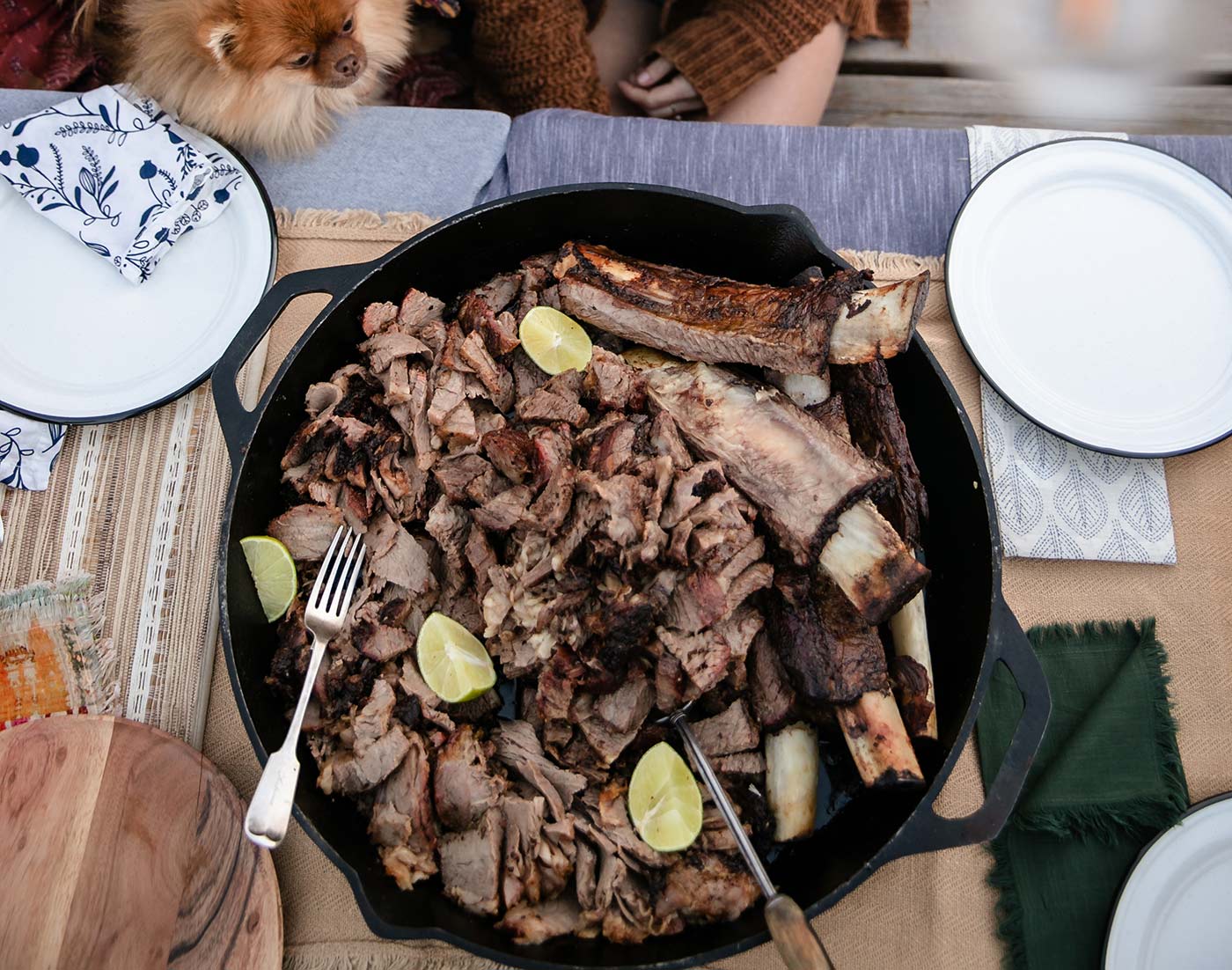
By Chef Eduardo Garcia
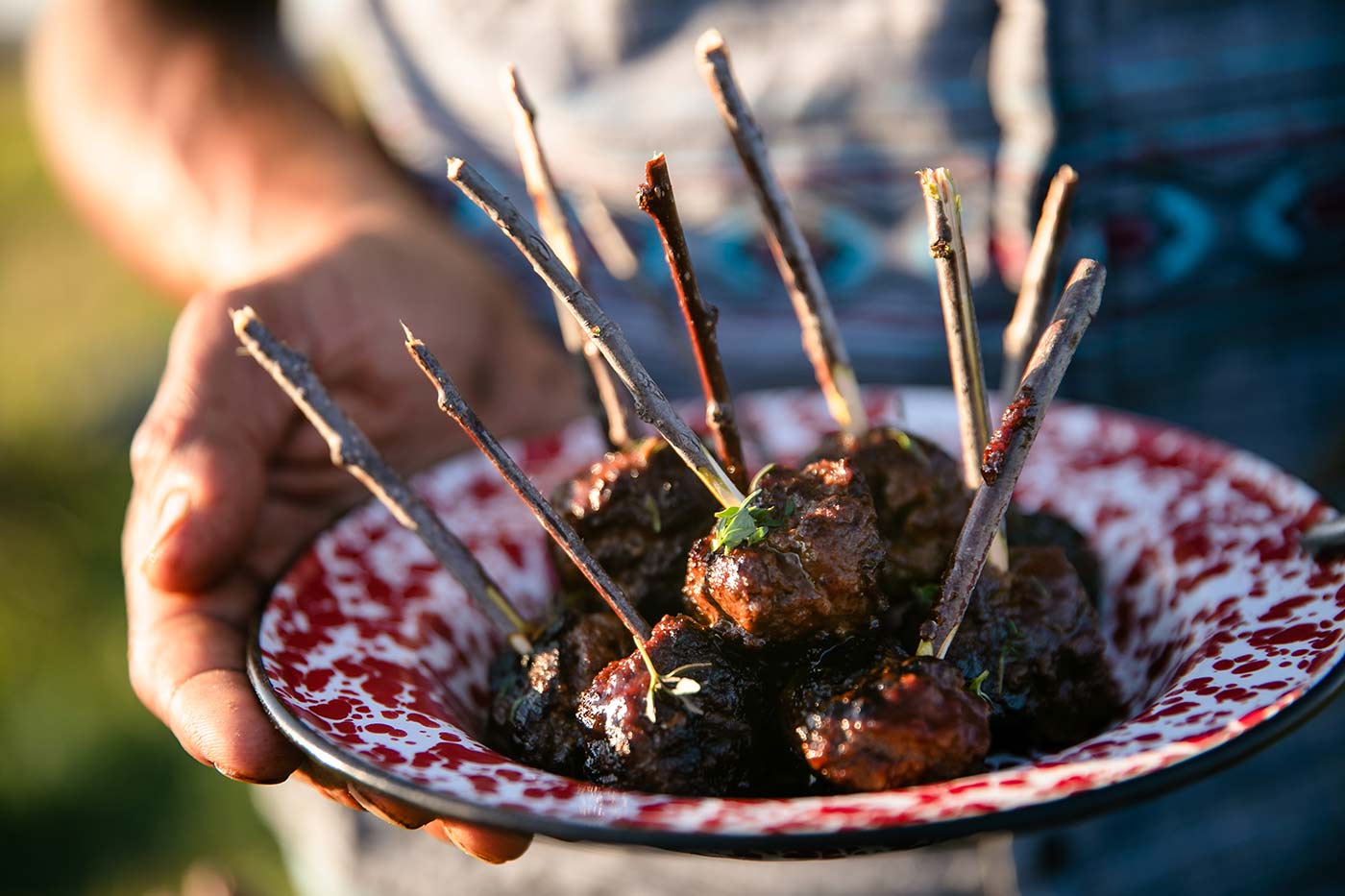
By Chef Eduardo Garcia
